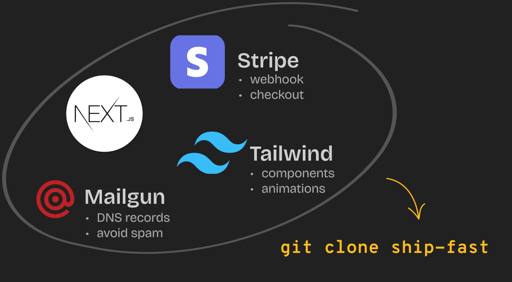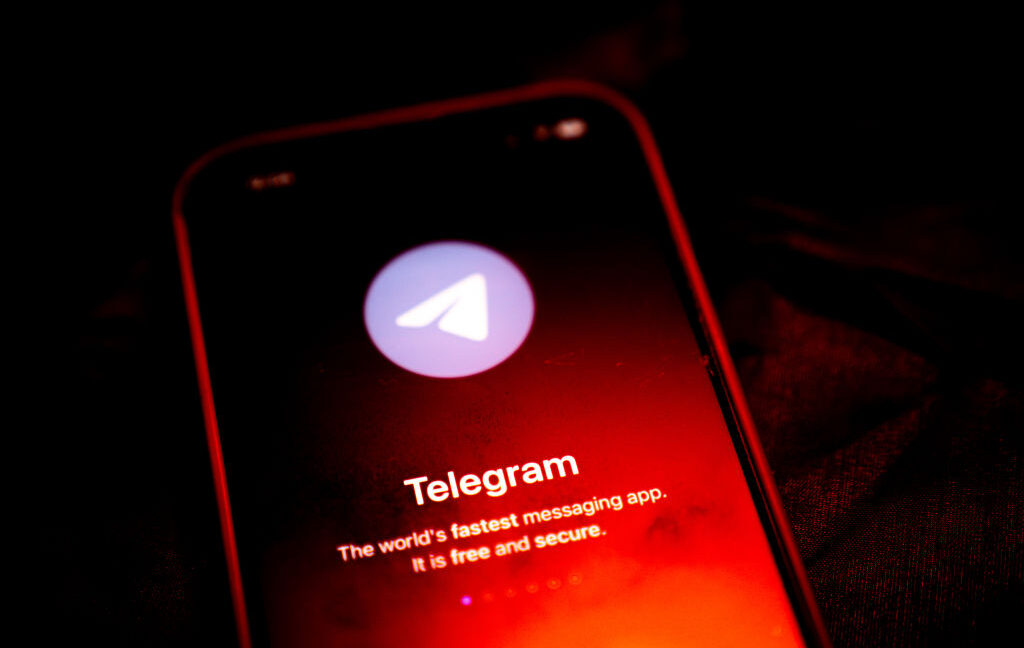Operation Narnia: Iran’s nuclear scientists reportedly killed simultaneously using special weapon
-
- what a stupid fucking name
- why does Israel get to have nuclear weapons
- why does no one ask question 2
- Why is it ok for them to assassinate civilians?
-
I don't agree with Israel at all. But Iran is a theocratic ethnostate as well. One that has pretty loudly proclaimed that the day they have nuclear weapons is the day before they use one on Israel. There's nobody out there who's in a morally high position.
If I learned anything from the 2024 election it’s that we must unequivocally support the lesser evil. Since Israel attacked first (and is actively committing genocide), that means Iran is the lesser evil and therefore they are perfect and not supporting them means you support genocide. /s
-
In 1994, Ukraine gave up its nuclear weapons in exchange for security assurances from the United States, the United Kingdom, and Russia.
A huge mistake, apparently
-
But like... Presumably, you're not just individually killing a bunch of civilians precisely
No, they're not precise at all unless you consider also killing their families and potentially an entire building full of people to be acceptable "precision."
That's why it seems like bullshit to pretend lower tech cluster bombs are an inexcusable evil compared to Palantir AI drones.
They are more precise than cluster bombs.
-
The nuclear scientists were killed using a special weapon whose details were barred from publication, Channel 12 says.
The 10th nuclear scientist was killed shortly after the other nine, as part of the overnight Thursday-Friday Israeli operation, which included strikes on Iran’s ballistic missile program and the Natanz nuclear site, along with the elimination of top members of the Islamic Republic’s military leadership, the network says.
The nuclear scientists were all killed while they were sleeping in their beds, with Israel deciding to carry out the assassinations simultaneously so that there wouldn’t be time to tip off those being targeted.
The scientists apparently believed they were safe from such targeting in their homes, a senior Israeli official tells Channel 12, noting that previously assassinated nuclear scientists were killed while heading to their cars after work.
Israel had been tracking Iranian nuclear scientists for years and the ten killed last week were marked for assassination in November of last year, Channel 12 says.
Just when I feel like dystopian news can't really disturb me anymore...
Leaving this totally unrelated article about Palantir and Israel here for absolutely no reason at all...
How Israel Uses AI in Gaza—And What It Might Mean for the Future of Warfare:
A program known as “The Gospel” generates suggestions for buildings and structures militants may be operating in. “Lavender” is programmed to identify suspected members of Hamas and other armed groups for assassination, from commanders all the way down to foot soldiers. “Where’s Daddy?” reportedly follows their movements by tracking their phones in order to target them—often to their homes, where their presence is regarded as confirmation of their identity. The air strike that follows might kill everyone in the target's family, if not everyone in the apartment building.
Abraham, whose report relies on conversations with six Israeli intelligence officers with first-hand experience in Gaza operations after Oct. 7, quoted targeting officers as saying they found themselves deferring to the Lavender program, despite knowing that it produces incorrect targeting suggestions in roughly 10% of cases.
I guess this is what they meant by they had something planned whether the US bombed Fordow or not
-
So Netanyahu let close to 1200 Israelis die of which 736 were civilians? Are any Israelis condemning him for that?
There is also the Hannibal directive that was used against Civilians that die.
Israel killed a non disclosed number of its own Civilians to prevent them being taken hostage.
https://www.abc.net.au/news/2024-09-07/israel-hannibal-directive-kidnap-hamas-gaza-hostages-idf/104224430 -
Theocracy yes, almost as badly as the zionists. Ethnostate no. You don't know what the fuck you're talking about, hazbarite.
When was the last time Iran invaded land to settle it with its own people?
-
The thing is, until someone actually faces any consequences in modern times for atrocities such as these; simply saying how bad they are has become meaningless.
It isn't meaningless.
It is not enough in itself and being like "well i said it, now all is done from my side" is problematic.
Still it is important to call it out as a mean to pressure those with direct power to enact consequences to do so.
-
When was the last time Iran invaded land to settle it with its own people?
Yes, because iran is as bad in one single way as the zionists, they're also as bad in all the other ways.
Like how im a really shitty painter, so therefore im exactly as bad as hitler in everything.
Im glad you understood precisely what i was saying there. Really helps my faith in humanity.
-
Militaries tend to do both this things.
Only one is defensible.
-
The nuclear scientists were killed using a special weapon whose details were barred from publication, Channel 12 says.
The 10th nuclear scientist was killed shortly after the other nine, as part of the overnight Thursday-Friday Israeli operation, which included strikes on Iran’s ballistic missile program and the Natanz nuclear site, along with the elimination of top members of the Islamic Republic’s military leadership, the network says.
The nuclear scientists were all killed while they were sleeping in their beds, with Israel deciding to carry out the assassinations simultaneously so that there wouldn’t be time to tip off those being targeted.
The scientists apparently believed they were safe from such targeting in their homes, a senior Israeli official tells Channel 12, noting that previously assassinated nuclear scientists were killed while heading to their cars after work.
Israel had been tracking Iranian nuclear scientists for years and the ten killed last week were marked for assassination in November of last year, Channel 12 says.
Just when I feel like dystopian news can't really disturb me anymore...
Leaving this totally unrelated article about Palantir and Israel here for absolutely no reason at all...
How Israel Uses AI in Gaza—And What It Might Mean for the Future of Warfare:
A program known as “The Gospel” generates suggestions for buildings and structures militants may be operating in. “Lavender” is programmed to identify suspected members of Hamas and other armed groups for assassination, from commanders all the way down to foot soldiers. “Where’s Daddy?” reportedly follows their movements by tracking their phones in order to target them—often to their homes, where their presence is regarded as confirmation of their identity. The air strike that follows might kill everyone in the target's family, if not everyone in the apartment building.
Abraham, whose report relies on conversations with six Israeli intelligence officers with first-hand experience in Gaza operations after Oct. 7, quoted targeting officers as saying they found themselves deferring to the Lavender program, despite knowing that it produces incorrect targeting suggestions in roughly 10% of cases.
They are flying jets, using drones, and even small explosives. The homes of these scientists were severely damaged. The richest countries of the world are backing Israel.
Is this just Israel putting out propaganda? These scientists thought they were safe at home. Sinister! Super secret weapon that blows up apartment buildings. Sounds revolutionary!
-
You'll need to elaborate if you want to actually contribute.
The president of the US doesn't have their hand up the PM of Israel's ass. This is especially true of Biden who was known to be on his way out either way. We can withdraw support but its difficult for the US pres to do so unilaterally when Israel is politically popular on both side. Given the lack of power to make it stick such a phone call from Biden would have been ignored in favor of waiting for a change of regime.
-
But like... Presumably, you're not just individually killing a bunch of civilians precisely
No, they're not precise at all unless you consider also killing their families and potentially an entire building full of people to be acceptable "precision."
That's why it seems like bullshit to pretend lower tech cluster bombs are an inexcusable evil compared to Palantir AI drones.
But that's it exactly - cluster bombs just fling granades all over a city block at random. It's basically just collateral damage in the hopes of hitting a soft target
I mean, fuck palantir and I really don't like this tech in general, but blowing up a room or a house is way more precise. You're hitting just what you mean to hit
And that's what a lot of war crimes come down to - certain weapons are unacceptably imprecise. Which gets into the first rule of war crimes - you're not supposed to attack noncombatants
Let's not defend cluster bombs just because Israel is going to use this for justification...
Because of course they will, this whole thing started by blowing up the Iranian negotiator, they're obviously not going to start acting in good faith now
-
Thank you. The depths of that man’s evil never cease to amaze me.
The safest strategy with people like him is to assume there is no floor, and that for everyone else's safety, he should be humanely put down on that floor next to his morality.
And I mean put down in the sense we talk about our aged pets, and I know it's truly better than he deserves.
-
- what a stupid fucking name
- why does Israel get to have nuclear weapons
- why does no one ask question 2
Because you don't wanna be an antisemite, do you? /s
-
In 1994, Ukraine gave up its nuclear weapons in exchange for security assurances from the United States, the United Kingdom, and Russia.
Typically, no one wants to die for stupid shit, especially when they are in the wrong. But when there is no consequences such as dying, a.k.a no nukes, why not go to war and take everything? There's no morals between countries...unless enforced by nukes.
This is why I'm pro nuclear armament of all countries.
-
The nuclear scientists were killed using a special weapon whose details were barred from publication, Channel 12 says.
The 10th nuclear scientist was killed shortly after the other nine, as part of the overnight Thursday-Friday Israeli operation, which included strikes on Iran’s ballistic missile program and the Natanz nuclear site, along with the elimination of top members of the Islamic Republic’s military leadership, the network says.
The nuclear scientists were all killed while they were sleeping in their beds, with Israel deciding to carry out the assassinations simultaneously so that there wouldn’t be time to tip off those being targeted.
The scientists apparently believed they were safe from such targeting in their homes, a senior Israeli official tells Channel 12, noting that previously assassinated nuclear scientists were killed while heading to their cars after work.
Israel had been tracking Iranian nuclear scientists for years and the ten killed last week were marked for assassination in November of last year, Channel 12 says.
Just when I feel like dystopian news can't really disturb me anymore...
Leaving this totally unrelated article about Palantir and Israel here for absolutely no reason at all...
How Israel Uses AI in Gaza—And What It Might Mean for the Future of Warfare:
A program known as “The Gospel” generates suggestions for buildings and structures militants may be operating in. “Lavender” is programmed to identify suspected members of Hamas and other armed groups for assassination, from commanders all the way down to foot soldiers. “Where’s Daddy?” reportedly follows their movements by tracking their phones in order to target them—often to their homes, where their presence is regarded as confirmation of their identity. The air strike that follows might kill everyone in the target's family, if not everyone in the apartment building.
Abraham, whose report relies on conversations with six Israeli intelligence officers with first-hand experience in Gaza operations after Oct. 7, quoted targeting officers as saying they found themselves deferring to the Lavender program, despite knowing that it produces incorrect targeting suggestions in roughly 10% of cases.
What is to stop the ultra wealthy from simply each making a million of these AI commanded drones, and just...killing all the poor? ALL of them? ALL OF US?!
-
What is to stop the ultra wealthy from simply each making a million of these AI commanded drones, and just...killing all the poor? ALL of them? ALL OF US?!
Why would they do that? Then there'd be noone to work the mines...
-
the most dangerous profession in the world has gotta be iranian nuclear scientist.
That, or perhaps high ranking Iranian general.
-
What is to stop the ultra wealthy from simply each making a million of these AI commanded drones, and just...killing all the poor? ALL of them? ALL OF US?!
Then who would they lord over and whose hard work would they make their money off of, on the other hand using these threats to bring back slavery feels like the scarier future to me
-
Never run out of content again. Mojo Video generates unlimited original videos with a single click.
Technology 1
1
-
Your Brain on ChatGPT: Accumulation of Cognitive Debt when Using an AI Assistant for Essay Writing Task
Technology 1
1
-
The Current System of Online Advertising has Been Ruled Illegal by The Belgian Court of Appeal. Advertising itself is Still Allowed, but not in a Way That Secretly Tracks Everyone’s Behavior.
Technology 1
1
-
-
-
-
-



